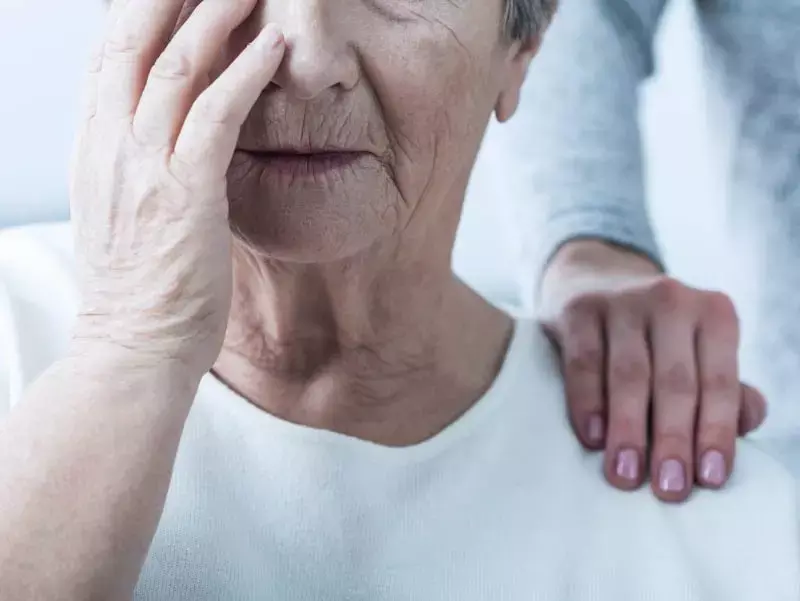- Home
- Medical news & Guidelines
- Anesthesiology
- Cardiology and CTVS
- Critical Care
- Dentistry
- Dermatology
- Diabetes and Endocrinology
- ENT
- Gastroenterology
- Medicine
- Nephrology
- Neurology
- Obstretics-Gynaecology
- Oncology
- Ophthalmology
- Orthopaedics
- Pediatrics-Neonatology
- Psychiatry
- Pulmonology
- Radiology
- Surgery
- Urology
- Laboratory Medicine
- Diet
- Nursing
- Paramedical
- Physiotherapy
- Health news
- Fact Check
- Bone Health Fact Check
- Brain Health Fact Check
- Cancer Related Fact Check
- Child Care Fact Check
- Dental and oral health fact check
- Diabetes and metabolic health fact check
- Diet and Nutrition Fact Check
- Eye and ENT Care Fact Check
- Fitness fact check
- Gut health fact check
- Heart health fact check
- Kidney health fact check
- Medical education fact check
- Men's health fact check
- Respiratory fact check
- Skin and hair care fact check
- Vaccine and Immunization fact check
- Women's health fact check
- AYUSH
- State News
- Andaman and Nicobar Islands
- Andhra Pradesh
- Arunachal Pradesh
- Assam
- Bihar
- Chandigarh
- Chattisgarh
- Dadra and Nagar Haveli
- Daman and Diu
- Delhi
- Goa
- Gujarat
- Haryana
- Himachal Pradesh
- Jammu & Kashmir
- Jharkhand
- Karnataka
- Kerala
- Ladakh
- Lakshadweep
- Madhya Pradesh
- Maharashtra
- Manipur
- Meghalaya
- Mizoram
- Nagaland
- Odisha
- Puducherry
- Punjab
- Rajasthan
- Sikkim
- Tamil Nadu
- Telangana
- Tripura
- Uttar Pradesh
- Uttrakhand
- West Bengal
- Medical Education
- Industry
Masupiridine lowers aggression among elderly patients with Alzheimer's disease

Hyderabad, Telangana: A new study published in the International Journal of Geriatric Psychiatry shows that masupiridine, a selective 5-HT6 receptor antagonist, reduces agitation/aggression and psychotic episodes in individuals with intermediate Alzheimer's disease (AD).
Both neuropsychiatric symptoms and cognitive decline are common in AD patients, but the neuropsychiatric symptoms are more difficult for family members and caregivers and have a large cost impact. In order to investigate the effects of masupirdine on neuropsychiatric symptoms, Ramakrishna Nirogi and his colleagues undertook this investigation.
In individuals with moderate AD, the effects of masupirdine (SUVN-502) on cognition were examined. The predetermined primary endpoint did not distinguish between the medication and placebo. The 12-item neuropsychiatric inventory scale's post hoc domain analyses were done.
The key highlights of this study were:
1. A statistically significant reduction in agitation/aggression scores was seen in the masupirdine 50 mg and masupirdine 100 mg treated arms at Week 13 in comparison to the placebo, and the effect was sustained for the duration of the 26-week trial in the masupirdine 50 mg treatment arm.
2. This effect was seen in a subgroup of patients (placebo, n=57; masupirdine 50 mg, n=53; masupird Similar findings were obtained in the subset of individuals who had agitation/aggression symptoms at baseline ≥3.
3. A substantial decline in psychosis ratings was seen in the masupirdine 50 mg and 100 mg treatment arms compared to placebo in the subgroup of patients who had baseline psychosis symptoms and/or symptom development.
In conclusion, Currently, the first-line therapy for neuropsychiatric symptoms in AD patients is non-pharmacologic, psychosocial intervention. Pharmacologic treatments, most notably antipsychotics, have a negligible impact on neuropsychiatric symptoms in AD patients; nevertheless, the use of antipsychotics is constrained by adverse effects, including black box warnings.
Reference:
Nirogi, R., Jayarajan, P., Benade, V., Shinde, A., Goyal, V. K., Jetta, S., Ravula, J., Abraham, R., Grandhi, V. R., Subramanian, R., Pandey, S. K., Badange, R. K., Mohammed, A. R., Jasti, V., Ballard, C., & Cummings, J. (2022). Potential Beneficial Effects of Masupirdine (SUVN‐502) on Agitation/Aggression and Psychosis in Patients with Moderate Alzheimer's disease: Exploratory Post Hoc Analyses. In International Journal of Geriatric Psychiatry. Wiley. https://doi.org/10.1002/gps.5813
Neuroscience Masters graduate
Jacinthlyn Sylvia, a Neuroscience Master's graduate from Chennai has worked extensively in deciphering the neurobiology of cognition and motor control in aging. She also has spread-out exposure to Neurosurgery from her Bachelor’s. She is currently involved in active Neuro-Oncology research. She is an upcoming neuroscientist with a fiery passion for writing. Her news cover at Medical Dialogues feature recent discoveries and updates from the healthcare and biomedical research fields. She can be reached at editorial@medicaldialogues.in
Dr Kamal Kant Kohli-MBBS, DTCD- a chest specialist with more than 30 years of practice and a flair for writing clinical articles, Dr Kamal Kant Kohli joined Medical Dialogues as a Chief Editor of Medical News. Besides writing articles, as an editor, he proofreads and verifies all the medical content published on Medical Dialogues including those coming from journals, studies,medical conferences,guidelines etc. Email: drkohli@medicaldialogues.in. Contact no. 011-43720751


